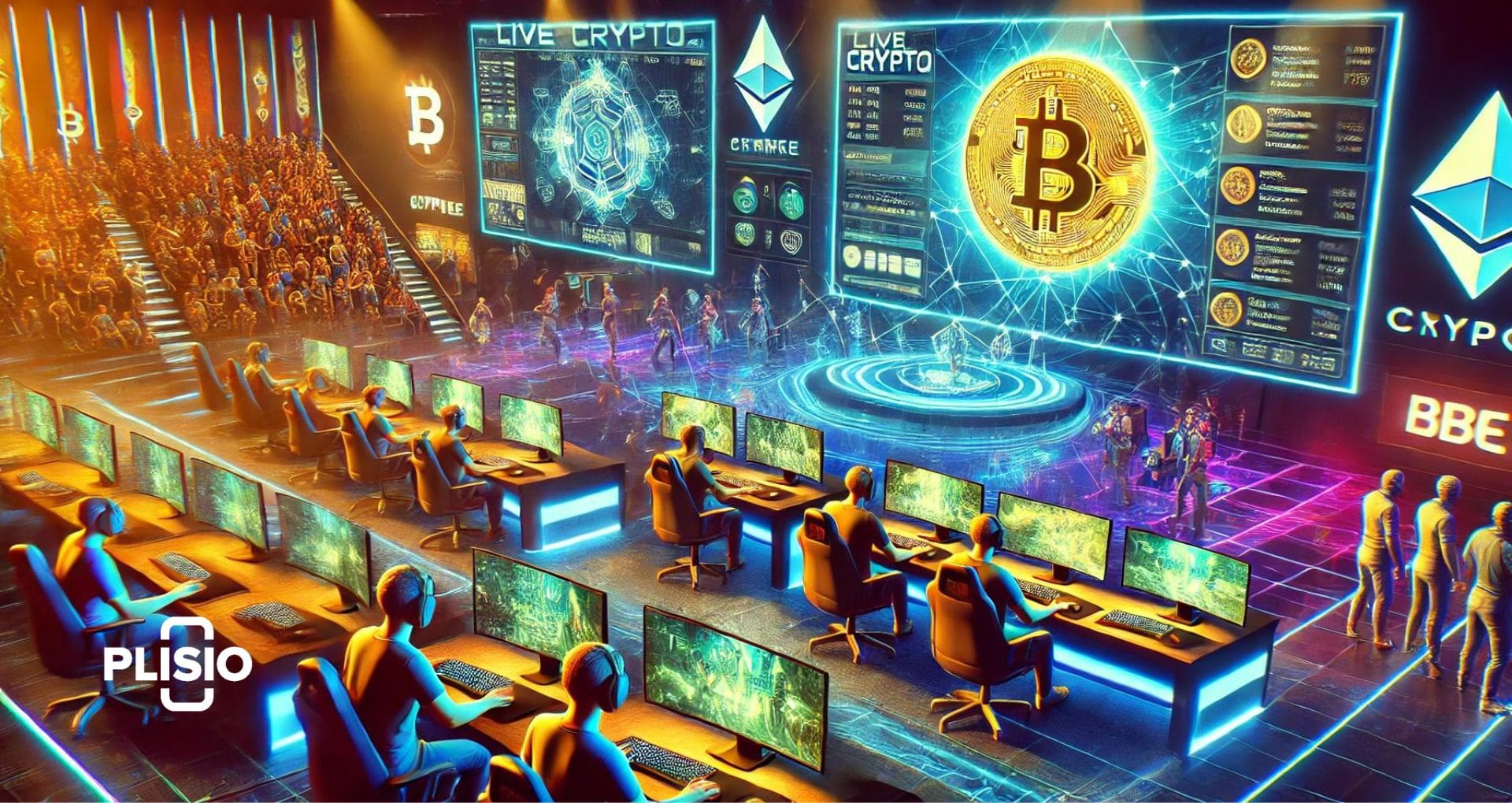Cryptocurrencies: How They Are Revolutionizing the World of Online Gaming

Cryptocurrencies and blockchain technology are rapidly transforming the world of online gaming by enabling more secure, transparent, and swift transactions. Their application in the iGaming sector not only simplifies financial operations but also introduces new paradigms of gaming and participation through decentralization and the creation of unique and tradable digital assets like NFTs (Non-Fungible Tokens). This revolution is driven by the growing demand for privacy and security among players, who prefer using cryptocurrencies such as Bitcoin, Ethereum, and other altcoins to make deposits and withdrawals anonymously, bypassing traditional intermediaries like banks. Additionally, the inherent transparency of blockchain allows for the verification of game fairness, reducing the risk of manipulation or fraud, and fostering a more equitable and reliable gaming environment.
This technological evolution, which has been underway for some time, extends beyond financial transactions. It paves the way for new forms of interaction and monetization, potentially impacting game design, in-game economies, and player community dynamics. To fully understand the major changes introduced by these emerging technologies and to analyze the benefits and future implications for the sector, it is essential to focus on the revolutionary impact of crypto transactions in iGaming.
The Revolution of Transactions in Gaming
The online gaming sector has always sought innovative payment methods that are fast, secure, and easy to use. Cryptocurrencies, with their decentralized and encrypted nature, represent a significant breakthrough in this context. Unlike traditional bank transactions, which can be subject to long waits and high fees, cryptocurrency transactions are almost instantaneous and incur significantly lower costs. For example, while an international bank transfer can take several business days, a cryptocurrency transaction like Bitcoin or Ethereum can be completed in minutes, if not seconds, regardless of geographic distance, all with just a few clicks done independently.
Players appreciate this speed and convenience as they can transfer funds quickly and securely without needing to share sensitive information like credit card numbers or bank details. This feature reduces the risk of fraud or identity theft, a common concern among online service users. Additionally, the anonymity provided by cryptocurrency transactions adds an extra layer of security, protecting users' privacy. This aspect is particularly important for players who prefer to keep their gaming activities confidential and not easily traceable.
Gaming platforms benefit from reduced transaction management costs and increased appeal to an international audience, who can easily access services without geographic or currency barriers. Cryptocurrencies eliminate the need for currency conversions and avoid exchange rate fluctuations, making financial operations simpler and more predictable. An added advantage for platforms is the ability to attract users from markets where traditional payment methods may be limited or inaccessible, thereby expanding their user base.
For instance, some online gaming platforms have started offering special bonuses or promotions for those who use cryptocurrencies, incentivizing the adoption of these payment methods. This approach not only attracts new users but also encourages the loyalty of existing players, who may feel more valued and appreciated.
The Impact of Cryptocurrencies on the iGaming World
Many casinos and betting platforms are adopting these new forms of payment, drawn by the ability to offer more secure and transparent transactions to their customers. The influence of cryptocurrencies is also being felt in the iGaming world, so much so that many industry operators, like those listed on sitiscommesse.com, one of the most popular comparators of AAMS online casinos, are beginning to consider this new deposit method. The adoption of cryptocurrencies allows these operators to expand their market and attract players from regions where traditional transactions may be complicated or restricted by local regulations. For example, in countries with restrictions on bank transfers or online payments, cryptocurrencies offer a practical and legal alternative for accessing gaming services.
Additionally, the ability to track all transactions on a public blockchain helps ensure game fairness, reducing concerns about possible manipulations or fraud. Blockchains provide an immutable and verifiable record of all transactions, meaning that both players and operators can trust the transparency of the process. This aspect is particularly important in the online gaming sector, where player trust is crucial for the long-term reputation and success of platforms.
Cryptocurrencies are also driving innovation in the business models of casinos and betting platforms. For instance, some sites are experimenting with "smart contracts", which automate the execution of transactions and payments, further reducing the risk of errors or delays. These smart contracts can also be used to implement games of chance with "provably fair", a system that allows players to independently verify the honesty of the results. Moreover, smart contracts can automatically manage promotions and bonuses, ensuring they are applied correctly and promptly, further enhancing the player experience.
Finally, the introduction of cryptocurrencies has opened new opportunities for marketing and promotion. Some casinos offer welcome bonuses in cryptocurrencies, while others incentivize the use of these digital assets with exclusive promotions, creating a competitive environment that favors the adoption of cryptocurrencies.
Blockchain: The Key to Transparency
One of the most revolutionary aspects of cryptocurrencies is the underlying technology, known as blockchain. This technology allows all transactions to be recorded in an immutable ledger that anyone can access, enabling secure trading. In online gaming, this means financial operations are completely transparent and verifiable, eliminating the risk of fraud and increasing user trust. Blockchain functions as a distributed digital ledger where each transaction is recorded in a block, and each block is linked to the previous one through complex cryptography, forming a long chain of information. This chaining process creates a bond between blocks that is extremely resistant to tampering. To alter a recorded transaction, one would need to change not only the block itself but also all subsequent blocks, a nearly impossible task without the network's consent and the modification of most participating nodes, providing unparalleled security.
Additionally, blockchain enables the creation of immutable records of all actions and transactions in the game. For instance, in a blockchain-based online casino, every bet and win is recorded transparently and verifiably, allowing users to check and confirm the legitimacy of operations. This level of transparency significantly reduces the risk of fraud, as any attempt to manipulate results would be visible to all users and easily detectable.
As mentioned earlier, smart contracts are another innovation made possible by blockchain, allowing agreements to be automated and executed securely and transparently. Smart contracts are self-executing programs with rules and conditions written in code. In an online gaming context, these contracts can be programmed to automatically execute transactions such as paying out winnings. For example, if a player wins a game, a smart contract can ensure that the prize is transferred to the winner's wallet without any human intervention, which would also be an additional burden for gaming operators. This eliminates the possibility of disputes or delays, as the payment occurs automatically according to predefined rules, which are immutable and cannot be altered once the contract is activated.
The combination of immutable records and smart contracts thus ensures game fairness while also reducing the risk of operational errors and disputes, creating a fairer and more transparent gaming environment for all participants.
The Influence of NFTs on Digital Ownership
"Non-Fungible Tokens" (NFTs) represent a significant advancement in the evolution of online gaming: these unique tokens, based on blockchain technology, allow players to own, sell, and trade digital items like avatars, skins, weapons, or virtual lands. Each NFT is unique and certified through a cryptographic identifier that guarantees its authenticity and ownership. Unlike cryptocurrencies, which are interchangeable, NFTs are unique and cannot be exchanged directly one-to-one. This characteristic gives them a distinctive value that can be verified and recognized globally. This is why some high-value NFTs in the field of graphic art have become prized collectibles.
The introduction of NFTs is transforming the concept of digital ownership, making in-game assets not only collectible but also potentially lucrative investments. A prime example is "CryptoKitties", a blockchain-based game where players collect and trade unique virtual cats, each with its own characteristics and attributes that influence its value. Some of these CryptoKitties have sold for thousands of dollars, demonstrating how NFTs can represent highly valuable economic assets.
Another example is "Decentraland", a blockchain-based virtual world where players can purchase and develop virtual land. These plots can be sold for significant sums, with some even being bought for millions of dollars.
This new economic dimension creates opportunities for players to earn directly from their time and skills in the game. For instance, in "Axie Infinity", players collect and breed digital creatures called Axies, which are unique NFTs. Players can then battle with their Axies or sell them on specialized NFT marketplaces. Some rare or well-trained Axies have reached high values, offering players a potential for real earnings. Additionally, the game rewards players with cryptocurrencies that can be exchanged for traditional currency, creating a genuine economy based on gameplay.
Gaming platforms are thus becoming true economic ecosystems, where the value of digital assets is recognized and tradeable. This development not only enriches the player experience, allowing them to own digital assets with real value, but also stimulates economic growth that benefits both game developers and players. NFTs, therefore, represent a new frontier in the monetization of gaming.
New Economic Models and Future Prospects
Cryptocurrencies and NFTs are giving rise to new economic models within the gaming sector: the play-to-earn model, where players earn cryptocurrencies or NFTs by playing, is just one example of how these technologies are redefining the economic dynamics of online games. In a play-to-earn system, players are no longer mere content consumers but also producers and economic beneficiaries. For instance, in "Axie Infinity", players can earn a cryptocurrency called Smooth Love Potion (SLP) by completing missions and battles. These cryptocurrencies can be exchanged for fiat currency or used to purchase other NFTs in the game. Similarly, in "The Sandbox", players can create, buy, and sell virtual goods and lands, accumulating real value.
In the long term, these innovations could lead to greater decentralization of the sector, with players able to take on a more central and active role in the game's economy. Blockchain-based games tend to put control in the hands of users through decentralized governance mechanisms. For example, DeFi (Decentralized Finance) games can use DAOs (Decentralized Autonomous Organizations) to allow players to vote on key decisions regarding the game's development and management. This type of structure can incentivize greater participation and deeper engagement, as players have a direct interest in the game's prosperity and direction.
However, there are also significant challenges to address, such as regulation and the sustainability of blockchain-based ecosystems. The regulation of cryptocurrencies and NFTs is still developing in many jurisdictions, and future regulations could influence how these technologies are implemented and managed in the gaming sector. Additionally, the sustainability of blockchain ecosystems is a growing concern, particularly regarding the energy usage of Proof-of-Work blockchains. Some games are already exploring more eco-friendly solutions like Proof-of-Stake blockchains, which consume less energy.
Despite these challenges, the potential for a radical transformation of the online gaming world is evident. With the continuous evolution of technologies and regulations, we are likely to see further expansion and diversification of cryptocurrency applications in the gaming sector.

